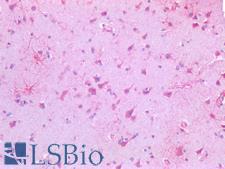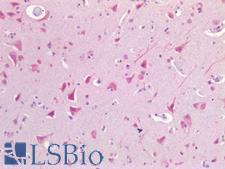Login
Registration enables users to use special features of this website, such as past
order histories, retained contact details for faster checkout, review submissions, and special promotions.
order histories, retained contact details for faster checkout, review submissions, and special promotions.
Forgot password?
Registration enables users to use special features of this website, such as past
order histories, retained contact details for faster checkout, review submissions, and special promotions.
order histories, retained contact details for faster checkout, review submissions, and special promotions.
Quick Order
Products
Antibodies
ELISA and Assay Kits
Research Areas
Infectious Disease
Resources
Purchasing
Reference Material
Contact Us
Location
Corporate Headquarters
Vector Laboratories, Inc.
6737 Mowry Ave
Newark, CA 94560
United States
Telephone Numbers
Customer Service: (800) 227-6666 / (650) 697-3600
Contact Us
Additional Contact Details
Login
Registration enables users to use special features of this website, such as past
order histories, retained contact details for faster checkout, review submissions, and special promotions.
order histories, retained contact details for faster checkout, review submissions, and special promotions.
Forgot password?
Registration enables users to use special features of this website, such as past
order histories, retained contact details for faster checkout, review submissions, and special promotions.
order histories, retained contact details for faster checkout, review submissions, and special promotions.
Quick Order
PathPlusTM USP19 Antibodies
USP19 is a deubiquitinating enzyme that regulates the degradation of various proteins such as RNF123, which stimulates CDKN1B ubiquitin-dependent degradation and impacts cell proliferation. It is required for cells to mount an appropriate response to hypoxia and rescues HIF1A from degradation in a non-catalytic manner. USP19 is important for regulating the expression and quality control of misfolded polyQ-expanded proteins. Additionally, USP19 decreases protein synthesis in atrophying skeletal muscle, represses myogenesis and regulates the transcription of major myofibrillar proteins. Because USP19 regulates and can inhibit muscle cell differentiation, it is a potential target of inhibition therapy as a means to increase post-injury muscle growth. Furthermore, USP19 deubiquinates a number of proteins including HDAC1 and HDAC2 that are pivotal for DNA repair and maintenance of chromosomal stability, and thus loss of USP19 is thought to contribute to genomic instability and to play a role in tumorigenesis. In immunohistochemistry of normal tissue, USP19 has cytoplasmic (endoplasmic reticulum) positivity in a majority of tissues throughout the body, with high expression in skeletal muscle.
References: The UniProt Consortium. Nucleic Acids Res. 47: D506-515 (2019); Nucleic Acids Res. 2016 Jan 4;44(D1):D733-45, PMID:26553804; PLoS One. 2016 Jan 25;11(1):e0147515, PMID: 26808260; Mol Biol Cell. 2015 Mar 1;26(5):913-23, PMID: 25568336; Oncotarget. 2017 Jan 10; 8(2): 2197–2208, PMID: 27517492
2 PathPlusTM Antibodies


☰ Filters
Products
Antibodies
(2)
Type
Primary
(2)
Target
USP19
(2)
Application
IHC-P
(2)
SWB
(1)
Host
rabbit
(2)
Product Group
PathPlus Cancer
(2)
Clonality
polyclonal pc
(2)
Format
Unconjugated
(2)
Publications
No
(2)

Cancer
Fast Shipping
USP19 Rabbit anti-Human Polyclonal Antibody
IHC-P, SWB
Unconjugated
50 µg/$395

Cancer
Fast Shipping
USP19 Rabbit anti-Human Polyclonal Antibody
IHC-P
Unconjugated
50 µg/$395
Viewing 1-2
of 2
product results










